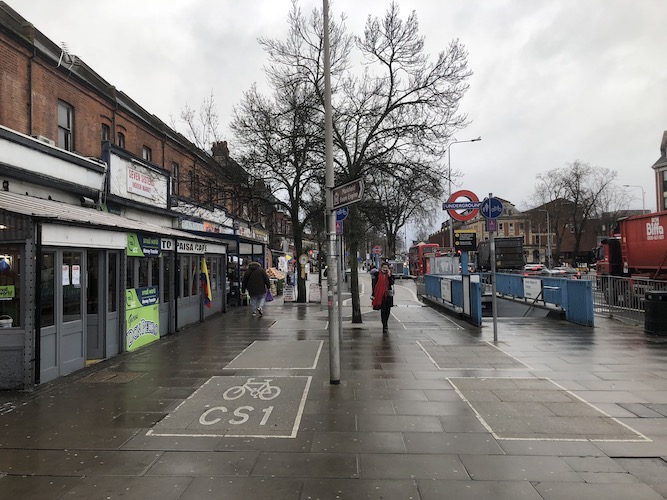A cross-party group of Haringey councillors has advised the council to play a conciliatory role in shaping the future of the Seven Sisters indoor market – known to some as the “Latin Village” – and take a cautious approach to providing any financial support for a so-called “community plan” devised by some of the market’s bitterly divided traders and allies.
In a 32-page report on the future of the currently closed market, which has been the focus of sustained political and media campaigning for several years, Haringey’s housing and regeneration scrutiny panel recommends that the council has a representative on a “partnership board” being set up by Transport for London, which owns the market site, with a view to helping find agreement between the market traders, who have been split into two rival camps since 2017.
It warns that the council “should be clear in respect of its safeguarding and fiduciary responsibilities” and “conduct due diligence, including reference to external expertise, regarding the viability of the community plan” – which the council has publicly backed – adding that it should have direct representation on an organisation the community plan’s supporters want to found to manage the market – a community benefit society – should it provide any funding.
The building housing the market at Ward Corner was intended to be redeveloped, providing a new space for the market traders, under a long-term development agreement between the council and property firm Grainger, signed in 2007. But Grainger withdrew from the scheme in August because of viability concerns. The market had been forced to close in March 2020 due to its electricity supply being unsafe.
The scrutiny panel’s report has been favourably received by the Market Traders and Workers Union for Seven Sisters (MTWUSS), which represents one of the trader factions. MTWUSS members had told the panel they would like the council to take a leading role in the management of the market, in part to prevent it being dominated by the other traders’ group, the Seven Sisters Market Traders Association (SSMTA), which backed the creation of community plan by a local trust.
They questioned the ability of the trust to run the market and also, in the words of the report, “had concerns about transparency and accountability of some aspects of the community plan” and, in particular, having initially helped secure donations to support it, “voiced concerns about where the money had been spent”.
For its part, the SSMTA told the panel it had found Grainger and the now former operator of the market difficult to work with and “primarily interested in making money rather than looking after the market itself or the wellbeing of the traders”. They have welcomed Grainger’s withdrawal from the scheme and now want to community plan to be delivered and the market restored.
However, while the SSMTA saw a role for the council in supporting traders, “particularly in terms of negotiating with TfL” and its partnership board, its representatives told the scrutiny panel that there was “fundamentally a lack of trust and a lack of faith in the council and other bodies” and questioned why they would need the council’s help now.
The scrutiny panel’s report’s eight recommendations to the council, also include the council taking steps to ensure that the market site, which is next to Seven Sisters station and owned by Transport for London, remains in public ownership for the long term and should be “clear about what its role in the governance process would be” should TfL and its partnership board ever give make the proposed community benefit society the market’s leaseholder.
On London strives to provide more of the kind of journalism the capital city needs. Become a supporter for £5 a month or £50 a year and receive an action-packed weekly newsletter and free entry to online events. Details here.
